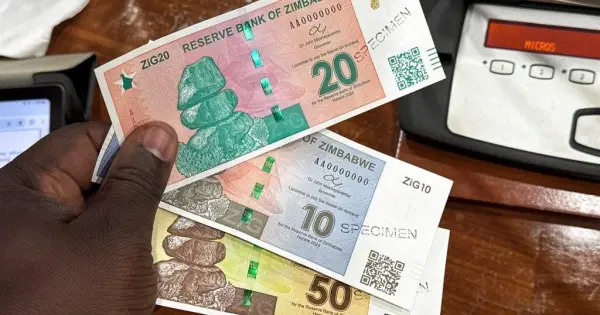Managing rental properties in Zimbabwe probably sounds easier than it is. When you're juggling multiple tenants, maintenance requests, financial records, record collection, your entire work-life could fall apart rapidly.
Whether you're a seasoned realtor expanding into property management or just starting out, this guide addresses the real challenges you face every day.
Zimbabwe's property market has evolved significantly in recent years. With rental rates ranging from USD 450 all the way up to USD 4,500 monthly (though in unique cases) across different locations, property management has become both more profitable and more complex.
Rising inflation, changing tenant expectations, and new technology requirements mean you need updated strategies to succeed. Although property purchase prices have risen, rental prices have been largely stable. This is due to largely unchanging income levels for the rental market.
The largest driver of rental price increases has simply been increasing demand over limited supply rather than rising income levels.
In short, Zimbabwe has a very unique economic environment that creates specific challenges. Foreign currency transactions, infrastructure limitations, and varying regional regulations require local expertise. Our analysis of over 7,000 properties across 80 cities and towns shows that well-managed properties command 15-20% higher rental rates than poorly maintained ones.
This guide covers everything from tenant screening to legal compliance, using real data from Zimbabwe's property market as compiled by Propertybook's extensive database. You'll learn practical systems that work for both single-property owners and large portfolios.
Understanding Zimbabwe's Rental Property Landscape
The rental market in Zimbabwe presents unique opportunities and challenges that differ significantly from other African markets. Houses make up 28 percent of rental properties, while apartments to rent account for just 8 percent. Townhouses for rent in Zimbabwe are increasingly popular at 13 percent.
The point though is that this distribution does and should affect your management approach and tenant expectations.
Average property values vary dramatically by location. Harare properties average USD 290,000, while Bulawayo averages USD 155,000. These price differences impact rental rates, tenant demographics, and maintenance costs. Understanding these regional variations helps you set competitive rates and manage expenses effectively.
Popular rental categories include:
- Houses to rent in Harare medium density areas commanding USD 800 - 1,500 monthly
- Luxury apartments to rent in gated communities in Harare ranging from USD 1,500 - 2,500 per month
- Harare City centre flats to rent appealing to young professionals can start as low as USD 250 - 1,200 a month
- 4 bedroom townhouse to rent properties popular with families go from around USD 500 - 4,500
- Cheap houses to rent in Harare high density areas starting around USD 230-500
Key market indicators show:
- Most free-standing house rentals have 3-4 bedrooms
- Properties with solar power systems command 10-15% rental premiums
- Security systems and modern fixtures significantly increase rental appeal
- Internet connectivity is increasingly expected by tenants
The economic environment requires careful financial planning. Monthly council rates range from USD 50-100, while service charges for apartments typically run USD 20-50. Factor these costs into your rental calculations to maintain profitability.
How to Effectively Screen Tenants in Zimbabwe
Tenant screening determines your property management success more than any other factor. Well-screened tenants are three times less likely to default on payments, making this process crucial for your bottom line. Whether you're managing a luxury flat to rent or handling cheap rental Harare properties, the screening principles remain the same.
Your screening process should include:
Income verification - Rent should not exceed 30% of the tenant's verified monthly income. Request recent pay stubs, employment letters, and bank statements. For self-employed tenants, require tax returns and business registration documents.
Credit and reference checks - Contact previous landlords directly. Ask specific questions about payment history, property care, and any disputes. References from friends or family carry less weight than landlord references.
Property viewing behavior - Pay attention to how potential tenants treat your property during viewings. Do they remove shoes without being asked? Do they ask thoughtful questions about maintenance and utilities? Do they even show up on time? These behaviors can strongly indicate future tenant quality.
Documentation requirements - Collect copies of national ID, employment verification, and emergency contact information. Store these documents securely, as they're essential for legal proceedings if problems arise.
The screening process takes time, but rushing leads to problem tenants. Budget 2-3 weeks for proper screening, including reference verification and documentation review. This applies whether you're filling a 1 bedroom to rent in Hatfield or a 4 bedroom farm house for rent.
Creating Bulletproof Rental Agreements
Your rental agreement protects both you and your tenant. Zimbabwe's property laws require specific clauses, and missing these creates legal vulnerabilities that cost money and time.
Essential agreement components include:
Property description and condition - Document the property's current state with photos and written descriptions. Include fixtures, appliances, and any existing damage. This prevents disputes during move-out inspections.
Rent and payment terms - Specify the monthly rent amount, due date, and acceptable payment methods. Include late payment penalties and the grace period. Many successful property managers require payment by the 5th of each month with penalties starting on the 6th.
Security deposit terms - The industry standard is one month's rent as security deposit, although two or even three months isn't unheard of. Specify what damages qualify for deductions and your timeline for returning deposits. Keep security deposits in a separate account.
Maintenance responsibilities - Clearly define who handles different types of repairs. Tenants typically handle minor issues like light bulbs and drain cleaning, while you handle major repairs and appliance maintenance.
Termination conditions - Include notice periods for both parties, typically 30 days. Specify conditions that allow immediate termination, such as non-payment or property damage.
Have a qualified attorney review your agreement template. Legal compliance varies by region, and outdated agreements create expensive problems.
Property Maintenance That Actually Works
Preventive maintenance saves more money than emergency repairs. Properties receiving regular maintenance command 15-20% higher rental rates and experience fewer vacancy periods.
Create a maintenance schedule that includes:
Quarterly inspections - Visit your property every three months to identify potential problems. Check plumbing, electrical systems, and structural elements. Document everything with photos and written notes.
Annual maintenance budget - Allocate 1-2% of your property's value for yearly maintenance. A USD 200,000 property needs USD 2,000-4,000 annual maintenance budget. This covers routine repairs, painting, and system updates.
Emergency repair protocols - Establish relationships with reliable contractors before emergencies happen. Keep a list of plumbers, electricians, and handymen who respond quickly and work within your budget.
Tenant maintenance requests - Create a simple system for tenants to report problems. Many property managers use WhatsApp groups or basic apps to track requests and response times.
Preventive replacement schedules - Replace water heaters every 8-10 years, repaint interiors every 3-5 years, and service air conditioning annually. Proactive replacement prevents emergency situations and tenant dissatisfaction.
Document all maintenance with receipts and photos. This record-keeping proves proper property care and helps with insurance claims or legal disputes.
Financial Management Systems
Successful property management requires organized financial systems. Zimbabwe tax law is complicated and new laws and regulations are not uncommon. Poor record-keeping leads to tax problems, cash flow issues, and missed opportunities for profit optimization.
Essential financial components include:
Separate business accounts - Never mix personal and rental property finances. Open dedicated accounts for rental income, security deposits, and maintenance expenses. This separation simplifies tax preparation and legal compliance.
Monthly financial tracking - Record all income and expenses monthly. Track rent payments, late fees, maintenance costs, and vacancy losses. Use simple spreadsheets or property management software to maintain accurate records.
Tax preparation - Keep receipts for all property-related expenses. Deductible expenses include maintenance, repairs, insurance, and property management fees. Consult a tax professional familiar with Zimbabwe's property tax laws because ZIMRA may be unforgiving.
Cash flow planning - Maintain reserves for unexpected expenses and vacancy periods. Keep 3-6 months of expenses in reserve, including mortgage payments, maintenance costs, and property taxes.
Rent optimization - Review rental rates annually based on market conditions and property improvements. Properties with added value like solar power or security systems justify higher rents.
Regular financial review helps identify problems early and opportunities for improvement. Schedule monthly reviews to track performance and adjust strategies.
Legal Compliance and Risk Management
Property management involves significant legal responsibilities. Ignorance of local laws creates expensive problems and potential liability issues. As one of the registered real estate agents in Zimbabwe, you must understand these requirements thoroughly.
Key compliance areas include:
Estate agent registration - All rental real estate agents must register with the Estate Agents Council of Zimbabwe. This registration protects you legally and builds credibility with clients. The list of registered real estate agents in Zimbabwe is publicly available and clients often verify this information.
Trust account management - Maintain proper trust accounts for security deposits. These funds must remain separate from your operating accounts and follow specific legal requirements.
Property registration - Ensure all properties are properly registered with local authorities. Missing documentation creates problems during tenant disputes or property sales.
Insurance requirements - Maintain comprehensive property insurance covering fire, theft, and liability. Review coverage annually and update policies as property values change.
Eviction procedures - Understand legal eviction processes before you need them. Zimbabwe's tenancy law is old, and often landlord friendly. However, improper eviction attempts create legal liability and damage your reputation. Propertybook's expert suggestion is to use courts and not practice "self-eviction" when a tenancy eviction gets complicated.
Stay updated on changing regulations through professional associations and legal consultations. Zimbabwe's property laws evolve, and compliance requirements change.
Technology and Efficiency Tools
Modern property management relies on technology to streamline operations and improve tenant satisfaction. The right tools save time and reduce errors while providing better service. Whether you're managing classified houses to rent in Harare or premium properties, technology helps you serve clients better.
Recommended technology solutions:
Property management software - Use dedicated software to track rent payments, maintenance requests, and tenant communications. Popular options include cloud-based systems that work on smartphones and computers.
Digital payment systems - Accept rent payments through mobile money platforms and bank transfers. Digital payments reduce collection time and provide automatic records.
Communication platforms - Establish consistent communication channels with tenants. WhatsApp groups work well for general announcements, while email handles formal communications.
Document management - Store all property documents digitally with backup copies. Include lease agreements, maintenance records, and tenant information in organized file systems.
Maintenance tracking - Use apps or spreadsheets to track maintenance requests, completion dates, and costs. This system helps identify recurring problems and contractor performance.
Technology should simplify your work, not complicate it. Choose tools that match your technical skills and business needs. The goal is helping clients find the right property to rent home quickly and efficiently.
Growing Your Property Management Business
Successful property management creates opportunities for business growth. Satisfied tenants stay longer, reducing vacancy costs and marketing expenses. Whether you're managing new properties to rent or established rental portfolios, growth strategies remain consistent.
Growth strategies include:
Tenant retention programs - Focus on keeping good tenants rather than constantly finding new ones. Respond quickly to maintenance requests, provide clear communication, and consider small rent increases rather than large jumps.
Market diversification - Spread your portfolio across different segments. Managing flats to rent in Harare alongside houses to rent Garden City reduces risk and captures different tenant demographics. Consider adding apartment to rent city centre options for young professionals while maintaining 2 bedroom house to rent in Harare properties for families.
Referral systems - Satisfied tenants often know other quality renters. Offer referral incentives for successful tenant introductions.
Professional development - Stay current with market trends, legal changes, and new technologies. Join professional associations and attend industry events.
Service expansion - Consider offering additional services like property sales, property finding, or maintenance coordination. These services provide additional revenue streams.
When clients ask "house up for rent" or search for "new houses to rent," your reputation and systems determine whether they choose your services. Focus on building processes that consistently deliver results across all property types, from 2 bed rental units to luxury properties.
Property management success comes from consistent execution of proven systems. Start with solid fundamentals, then expand as your experience and confidence grow.
Visit Propertybook.co.zw to access Zimbabwe's largest property database and connect with experienced property management professionals who can help you succeed in this competitive market.





